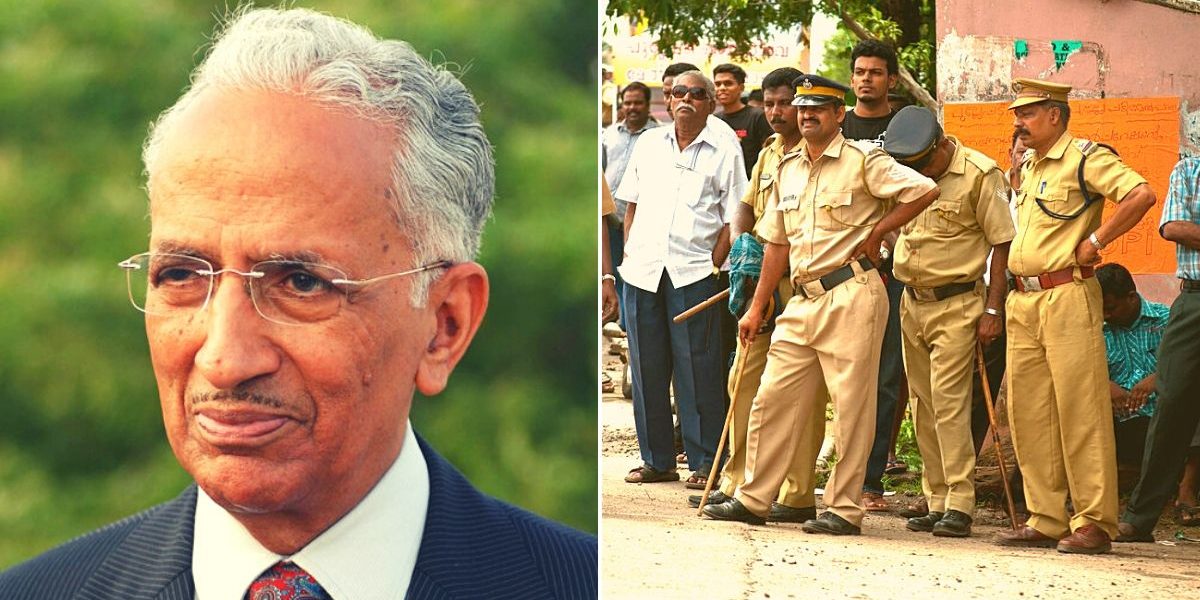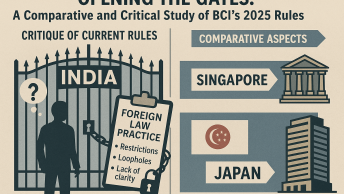Introduction
On a busy, cold, and sunny day in February 2024, Indian Express came out with a short report on the practice of appointment of Acting Director General of Police (DGP) in various states. It flagged the flouting of Supreme Court (“SC”) directives of 2018. A few days later, the Ministry of Home Affairs(MHA) sent a notice to all the defaulting states pressing for compliance with the SC directives.
The practice of appointing acting DGPs leads to instability of tenure which can hinder effective policy implementation and reduce accountability, thereby undermining the integrity of the police force. This can have a deleterious impact on the morale of the officers in the cadre, reduce operational effectiveness and can also lead to greater politicization.
Nearly two decades after the landmark judgement in Prakash Singh v. Union of India (“Prakash Singh”), and after various court interventions on the issue, the situation, in reality, has progressed at a sluggish pace. The key to understanding the reticence of states to implement reforms lies in understanding the complex issue of police reforms vis-à-vis the appointment of the DGP, federalism, and Centre-State relations.
The Prakash Singh Judgement and Apex Court 2018 Order on Appointment of DGPs
Prakash Singh had given a total of seven directives for police reforms. The second directive is that the State must appoint the DGP through a merit-based, transparent process. The SC in 2018 ordered the appointment of the DGP to be made from the list of three officers provided by the Union Public Service Commission (“UPSC”) after considering the length of service, service record, and range of experience. It must be ensured that the DGP has a minimum tenure of two years, irrespective of the date of superannuation. Moreover, the SC discouraged the practice of the states to appoint acting DGPs.
According to the CHRI Report in 2020, only Arunachal Pradesh and Nagaland were truly compliant with the directive. A year later, in the CHRI Report 2021, only two states were compliant with these directives. The practice of appointing acting DGPs which was explicitly prohibited by the SC is being rampantly followed by the states. As recent as February 2024 , UP has got its fourth acting DGP, and there are 6 more states which have acting DGPs.
The State Police Board and Its Composition
‘Law and order’ and ‘Police’ are State subjects, and the Union cannot make laws on those subjects. Thus, the States must implement changes in their respective police acts. The Sorabjee Report prepared in 2005 led to the passage of the Model Police Act 2006 (“Act”), which introduced the reforms as recommended by the SC. Sec 4 of the Act provided for the appointment of the DGP from five senior-most officers empanelled by the State Police Board (“SPB”) as per the criteria laid down in Sec 4(3).
The SPB is formed under Section 41 comprising the Home Minister, the Leader of the Opposition in the State Assembly, a retired High Court Judge, the Chief Secretary, the Secretary-in-Charge of the Home Department, the Serving DGP (who is also the member-secretary) and five people from civil society as independent members. At least two members of the board have to be women. The Independent members of the SPB are appointed by a panel under sec 43. The members of the SPB come from diverse domains, ranging from the judiciary to civil society to the human rights watchdogs.The Model Police Bill, 2015 (“Bill”), which came later, did not make any significant changes in the powers, composition, and functions of the SPB. Hence, it seemed that there existed broad policy consensus, at least at the level of Union, for the appointment process. However, the States have not acted with alacrity on incorporating the changes introduced by the Model Police Act as only 17 states have either enacted or modified their police Acts to include the changes.
Need for a Broader Centre-State Consensus – A Federal Challenge
There have been discussions on moving the subjects ‘Police’ and ‘Public order’ from the State list to the Concurrent list through a constitutional amendment as opined by various experts and a NITI Aayog sponsored paper. It will allow the Union to also exercise powers in situations where the public order in a State has ramifications for national security. The 2nd Administrative Reforms Commission Report also stressed on giving CBI and State Police concurrent powers to investigate certain crimes designated “federal”, meaning those having Inter-State or national ramifications.
However, the Centre-State confidence building remains a weak link. Since the times of the Sarkaria Commission on Centre-State Relations, the Centre has given states very little space as far as the matters in the Concurrent list are concerned. The Inter-State Council, which the Sarkaria Commission had introduced to increase cooperation and coordination, still remains under the Ministry of Home Affairs, which according to experts, lacks substantial autonomy. As a result of this imbalance, basic discussions have been mired with mistrust, so the proposal to shift the subjects from the State list to the Concurrent list has found very little momentum.
There have been tussles over the subjects pertaining to the Concurrent list between the Centre and the State. The controversy between the Union Government and the Tamil Nadu Government over admission to the state medical colleges through NEET has continued since 2017, and the Bill still awaits assent. Also, when the Centre announced its plan to move libraries from the State list to the Concurrent list, it was widely opposed by states such as Kerala. The concern emerged from the point that once moved to the Concurrent list, according to Article 254 of the Constitution of India, the central law would prevail over the state law in case of conflict with the state law, seriously impacting the State’s autonomy. As the states already feel a bleak power balance in other matters, the spectre of diluting a few more powers is an unlikely bargain.
The SC order including the role of UPSC further soured the insecurities and intruded deep into the State’s space by effectively minimizing State influence in the panel of selection of the names. The inclusion of UPSC was to ensure a lack of favoritism and political interference in the selection of the post of the DGP. However, with the inclusion of UPSC, the court significantly diluted a state’s power in the selection process. This was considered against the separation of powers by undermining the federal nature of our Constitution. Therefore, there have been calls for reconsideration of the decision of the SC. However, due to a lack of consensus building and the reticence of States to accept change in the status quo, legislative reforms such as the SPB have not been implemented with alacrity.
The Way Forward
The issue has had interventions at various levels. The solution, therefore, must be comprehensive and coordinated, keeping in mind various stakeholders.
Strengthening Inter-State Council and starting broad-based dialogue: The mandate of the Inter-State Council is to discuss issues in which the Union and many or all states have an interest and to make recommendations for such subjects for concerted policy action. An independent Inter-State Council will help enhance the confidence of dialogue and forge a broader policy consensus. Moving the ISC out from the MHA and kickstarting the broad-level discussions on the issue might act as a boost for the process.
The Role of the Supreme Court: The SC has been encouragingly steadfast on the issue. However, the SC, apart from pressing on stringent compliance with the broad reforms, ventured deep into the administrative domain of the state by specifically including UPSC in the selection process. The court should focus more on holding states accountable for the non-compliance of the seven directives rather than venturing deep into the administrative domain
People-centric positioning: The police reforms appear mostly as an administrative restructuring and streamlining of the police and its legal setup. However, the reforms should be put forward from a people-centric perspective. The complete overhaul of the taxation regime was achieved by portraying it as a citizen-friendly move. The communication should establish that the appointment process has a direct effect on policing up to the point of citizen engagement. This might lead to the inclusion of police reforms as a regional issue, especially in those states where the Model Police Act and the directives of the SC have not been scrupulously followed
Conclusion
The issue of Police Reforms has been in policy circles for around half a century, but the progress on the ground has been agonisingly slow. The slow reforms prompted judicial interference in the issue. However, judicial interference has not come without criticism. The flouting of the directives on the appointment of DGPs is a visible reminder of the complex situation. Therefore, it is high time that consensus and confidence building between the Centre and States are done to implement far-reaching welcome changes in policing gradually.
Kartikeya Misra is a Fourth year student at the Ram Manohar Lohiya National Law University (RMLNLU).
[Ed Note: This piece was edited by Sohina Pawah and published by Baibhav Mishra from the Student Editorial Board]







[…] Posted byKartikeya Misra […]
Really appreciate this work of the author and his work into this deep unseen reality. This research was much needed, really helpful.
nvov2l
foteoq
q8l6q7